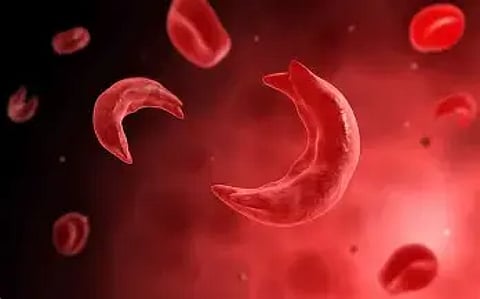

Sickle cell anaemia tests have become significantly more affordable in India, with government efforts driving the cost of diagnostic kits below ₹50 as part of an ambitious plan to improve accessibility and eradicate the inherited blood disorder.
In the past six months, two Indian Council of Medical Research (ICMR) institutes — the National Institute of Immunohaematology (NIIH) in Mumbai and the Centre for Research Management and Control of Haemoglobinopathies (CRHCM) in Nagpur — have evaluated and validated 35 point-of-care diagnostic kits for sickle cell anaemia developed by various companies.
The large-scale screening initiative falls under the government’s National Sickle Cell Elimination Programme, which aims to screen approximately seven crore people.
“When the process started, manufacturers initially quoted ₹350 per test,” said Dr Prabhakar Kedar, senior scientist at ICMR-NIIH. “The Department of Health Research then commissioned a health technology assessment to evaluate the cost-effectiveness of these diagnostic kits.”
A detailed analysis, conducted by ICMR-National Institute for Research in Reproductive Health, PGI Chandigarh, and NIIH, concluded that testing would be cost-effective if procured at ₹100 or less per test for high-risk groups. Acting on this recommendation, the National Health Mission directed state health departments to cap procurement prices at ₹100 per test.
Through a competitive public tendering process, procurement prices were quickly brought down to ₹82 per kit—far below the original manufacturer quote—resulting in projected savings of ₹1,857 crore. With continued innovation and validation, NIIH has since approved new kits, and manufacturers have further reduced prices to below ₹50 per test, Dr Kedar noted.
To ensure high standards of accuracy and accessibility, the government has entrusted Dr Prabhakar Kedar (Nodal Officer, ICMR-NIIH) and Dr Naga Muralidhar (Scientist, CRHCM, Chandrapur) to rigorously evaluate and approve these new diagnostic tools. The 35 validated kits range from simple finger-prick point-of-care tests to more advanced lab-based and genetic (molecular) diagnostics.
Dr Muralidhar highlighted the efficiency of the validation process, noting that most kits were approved within just one month of submission — an approach that ensures rapid availability of quality-assured tests, especially in remote and tribal areas.
“This marks a significant step forward for the National Sickle Cell Elimination Mission, which is targeting disease elimination in India by 2047,” Dr Kedar said.